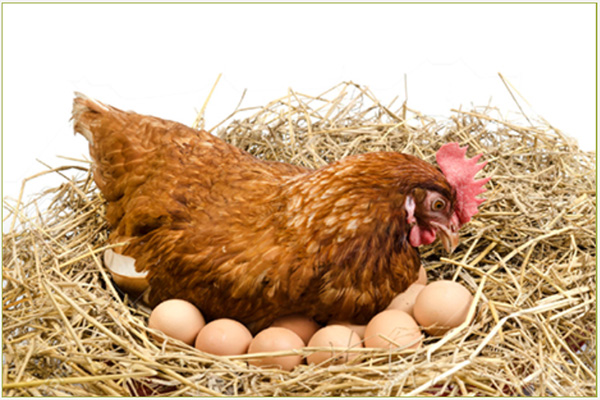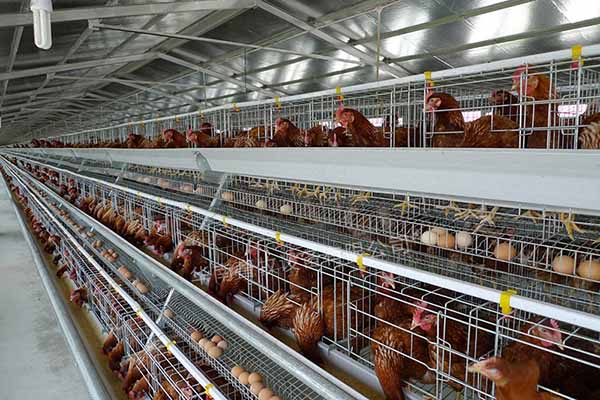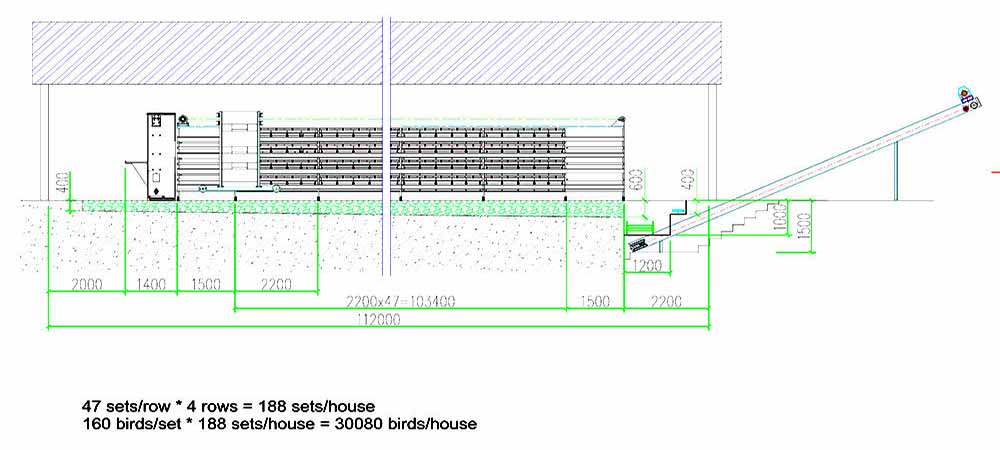How to Start a Chicken Farm in the UK: A Step-by-Step Guide
Time : 2025-04-18
Embarking on the journey of starting a chicken farm in the UK can be both exciting and challenging. With the right approach and a bit of dedication, you can turn your passion for poultry into a profitable venture. In this guide, we’ll walk you through the essential steps to kickstart your chicken farming business. So, let’s get to it!
1. Market Research
The first step in starting any business is understanding the market. Research the chicken farming industry in the UK, including the types of chickens, demand, and market trends. Consider factors like location, local regulations, and consumer preferences.
1.1 Identifying Your Market Niche
Decide what type of chicken farm you want to establish. Are you aiming for organic, free-range, or commercial production? This will shape your farming practices and marketing strategies.
1.2 Understanding Consumer Needs
Know who your customers are and what they want. Whether it’s for meat or eggs, organic or non-organic, your understanding of your target audience will influence your business plan.
2. Business Planning
A well-thought-out business plan is crucial for the success of your chicken farm. This document should include a mission statement, financial projections, and strategies for growth.
2.1 Defining Your Business Model
Will you be a producer of organic chicken eggs or meat? Your choice will affect your feed costs, production methods, and marketability.
2.2 Writing a Business Plan
In your business plan, outline the following sections:

- Executive Summary: A brief overview of your business plan.
- Company Description: Details about your business, including the farm’s location and facilities.
- Market Analysis: An assessment of the chicken farming industry in the UK and your target market.
- Organization and Management: Information about your team, management structure, and responsibilities.
- Services or Products: Description of the chickens you’ll raise and any additional services you may offer.
- Marketing and Sales Strategy: How you’ll attract and retain customers.
- Financial Projections: An estimate of your startup costs, revenue, and expenses over the next few years.
3. Legal Requirements and Regulations
Before you can start farming chickens, you’ll need to ensure compliance with all local and national regulations. Here are the key areas you need to consider:
3.1 Licenses and Permits
Contact your local council to determine the necessary permits for operating a chicken farm. This might include environmental health licenses and planning permissions.
3.2 Health and Safety
Maintain a high standard of animal welfare and hygiene to avoid potential legal issues. You may need to comply with EU regulations and UK welfare standards.
3.3 Zoning Laws
Ensure your farm complies with local zoning laws, as certain areas may be restricted for agricultural use.
4. Selecting a Location
Picking the right location for your chicken farm is crucial for its success. Here are some factors to consider:
4.1 Access to Resources
Proximity to feed suppliers, transportation networks, and potential customers is important for cost efficiency and logistics.
4.2 Environmental Considerations
A farm in a quiet rural area is typically preferable due to noise restrictions. Ensure the site is environmentally sound, minimizing pollution and impact on wildlife.
4.3 Size and Space
Select a property with sufficient space to accommodate your expected flock size and growth. Consider the need for pens, coops, and processing facilities.
5. Building Your Farm
Your farm infrastructure should be designed with the comfort and welfare of your chickens in mind, while also being cost-effective.
5.1 Chicken Coops and Pens
BUILD sturdy, secure coops that offer protection from the elements and predators. The size should be appropriate for the number of chickens you plan to keep.
5.2 Feed Storage
Install a safe and dry storage facility for your chicken feed to prevent spoilage and maintain hygiene.
5.3 Water Supply</h 3>
3>
Ensure a reliable and clean water supply for your chickens. Install waterers or drippers in your coop or pen to ensure hydration.
6. Raising Chickens
Raising chickens involves more than just putting them in a coop. Here’s how to start and maintain a healthy flock:
6.1 Chicken Breed Selection
Choose a breed that suits your farming goals. Consider factors like egg-laying, growth rate, and temperament.
6.2 Feeding and Watering
Provide a balanced diet and clean water. Keep in mind that different stages of a chicken’s life may require different feeding and watering practices.
6.3 Health Care
Regular veterinary care is essential to prevent disease and keep your flock healthy. Implement biosecurity measures to minimize the risk of illness.
7. Marketing and Sales
Even the best farm won’t thrive if it can’t attract and retain customers.
7.1 Local Distribution Networks
Build relationships with local butchers, grocery stores, and restaurants that are interested in purchasing your chicken products.
7.2 Direct Sales
Consider direct sales channels, like farmer’s markets, or creating a membership-based box program for home deliveries.
8. Ongoing Management and Expansion
Managing a chicken farm is an ongoing process. Continuously monitor your flock’s health, evaluate your costs and pricing strategies, and plan for growth.
8.1 Performance Analysis
Regularly review your farm’s performance against your business plan’s financial projections to make adjustments where needed.
8.2 Scaling Up
As your business grows, you may need to expand your flock, infrastructure, or market. Always plan for expansion to avoid outgrowing your facilities or losing customers.

Final Thoughts
Starting a chicken farm in the UK can be a rewarding venture if approached with thorough planning and attention to detail. By conducting market research, writing a comprehensive business plan, ensuring compliance with regulations, and investing in the right infrastructure, you can create a sustainable and profitable business.











